From forestry conservation to creating an easier way for people to buy quality second hand furniture in Basel. Meet Kate Bottriell, the founder of ecoChair.
Kate is originally from Canada where she studied forest conservation. For the last 13 years, she has dedicated her whole career working as a consultant. She would tackle sustainability topics with governments, organisations and businesses, trying to change the world through better governance.
Three years ago, Kate relocated to Basel after meeting her boyfriend (now husband) during her travels to Ecuador. Then, in February 2017, she founded ecoChair. Her core mission is to get people to buy less new furniture and more second hand furniture. I sat with Kate to find out more about what it is like to open a sustainable business in Basel.
Kate, How did you come up with your business idea?
When I first came to Switzerland, I spent a lot of time trying to buy second hand furniture for our apartment. It was not as easy as I expected. The main problem was that I did not speak the language. Once I did find something I liked, I was unable to carry it on my own. And on top, I had no idea where to find second hand furniture stores in the first place.
I found the whole process quite complicated. This frustration and my passion for sustainability led me to the idea of ecoChair which would simplify the processes of buying second hand furniture.
Why do you do what you do and what do you find meaningful about it?
What motivates me is the feeling that I am making a tangible, measurable impact in the world. I feel accomplishment when I can help someone solve their problem of finding second hand furniture in an easy and efficient way. At the same time, doing something good for the environment is part of my mission and vision.
The work that I have previously done was very abstract. You are working on a project but you do not really touch things with your hands, you do not get to see the reaction of the person you are helping. For me, the inspiration comes from this very interaction with other people.
Having the shop in Basel and being able to talk to people about the business is motivating. I became fascinated by what people like and do not like to buy, and the psychology behind it. Whereas, if you try to sell something through a website or try to design something and come with a different idea, you do not necessarily get that immediate response from people.
In short: I like the immediacy and the tangible nature of my work.
What are the challenges of opening your own business in Switzerland?
As an expat, the main challenge was the language. There are online resources in English, but as soon as I want to go talk to the Gemeinde and ask a question, I need to be able to speak German or bring a German speaking person with me. The GGG offers free tax support for expats - unless you are self employed, which is a bit frustrating. Knowing where to look or where to ask the right questions can sometimes be a challenge because you have to Google it in German.
I found the language challenging but it has not stopped me from doing what I want to do. It is an emotional challenge to start a business in a place where you do not know the language, and the society and culture are different than what you are used to. Sometimes, you just need to be cuddled a little bit to get you past the first hurdle.
What resources would you recommend to someone starting their own business in Switzerland?
I found two useful online resources in English that were helpful for me at the beginning. The State Secretariat for Economic Affairs SECO has a section on setting up a business as a foreign national, explaining all the legal requirements you need to know. Another helpful resource is startups.ch. They have a lot of useful information and also give courses in English for people wanting to start their own businesses.
There are also incubators like the Startup Academy in Basel which I went through. Startup Academy gave me the confidence to realize that other people were in the same position as I was. And it legitimized the fact that it was OK to try and start up something new. It made the whole process real as opposed to something I just talked about with my friends.
I would definitely recommend getting into a group, whether as a co-worker or as a participant in an incubator. When you are surrounded by like minded people, you realize that your challenges are normal and you can rely on people for camaraderie and support, which I think is quite important.
Any advice for someone interested in following this path?
At the beginning, do not spend too much time and money on technical stuff. Like expensive shops, renting things or committing to things, because the business idea will always change. Finding a good mentor who gets your idea and is willing to engage in it constructively would add a lot of value.
In terms of starting your own business, it is important that you do something that you really care about and feel a passion for. It has to be about something you love, something that interests you, something you feel you have an impact on. That's what will get you through the rough times - regardless of what your business idea is.
The most surprising thing?
Becoming a shopkeeper has been a surprise for me. Someone once asked me "What is someone who worked in international development doing selling furniture?" For me, it is a very clear link of motivation and justification. I do not see myself as only having a store. The end goal is to shift people's consumer behaviors and to make an impact.
My passion in life is solving the world's problems, and my small contribution to it is by promoting the habit of buying second hand furniture.
Tell us a little about the Swiss design furniture in your store.
One of the interesting things about buying second hand furniture in Switzerland is that it is a culture of quality. For example, the Horgen Glarus chair has a whole cult around it. The wood has to season for five years, every chair is hand made, and when you start to understand that, then you understand a little more about the pricing.
Therefore, when you first arrive, everything looks super expensive. So maybe you would not spend 700 francs on one chair but get the chair here for under 100 francs. You can still have that piece of Swiss quality, which is actually quite important. But it will be at a price that an expat is more used to, yet which does not diminish the quality. We feature furniture in great second hand condition which is good for your pocket book and good for the environment.
Where do you find the furniture you are selling and what is unique about it?
We source furniture from a variety of places. I really enjoy exploring flea markets and Brockis. There, it is great fun looking for treasures. But we do also get quite a few things on commission from other people, meaning that we help them sell their pieces. We have been working in partnership with a few other shops, collectors and upcylers around Basel, to help promote their stuff. In addition, when someone asks for help finding something specific, I pull out all the stops - I look in shops, I look online, I ask my friends - whatever it takes. In some ways, I am a bit like a matchmaker.
What has changed since you have launched your business?
Since I have launched the business, I have become much more integrated into the Swiss side of the Basel community. I am meeting the neighbors, having to interact with the Gemeinde, going to events, and talking to people. I think that for newcomers having trouble finding a job, starting a business might be an interesting way to get to know your new country.
Where does your motivation and drive come from?
It is more of a life philosophy and life choice which has been my driving force behind the decisions that I have been making in the past years. I have a desire to live my life as if it were my last, and to make choices that make my life better. To empower myself to do what I want to do and to believe that I can do it. To not be afraid to try is part of my self empowerment process that I have been following over the last seven years or so.
I have made it a choice that at times, being self-employed may be risky. But ultimately, it is focused on this idea. Whether it is moving to Switzerland, starting a business, quitting my job and traveling for six months... These were all choices that were geared towards not regretting things in life. I continue trying things and ultimately putting myself and my happiness first, even if that means maybe not advancing so fast in my career.
Companies come and go, but what stays is me, my family and my friends.
Where can our readers find ecoChair?
My items are available as follows:
- On the ecoChair website
- In our shop at Breisacherstrasse 66 in 4057 Basel
- And for inspiration, follow us on Instagram

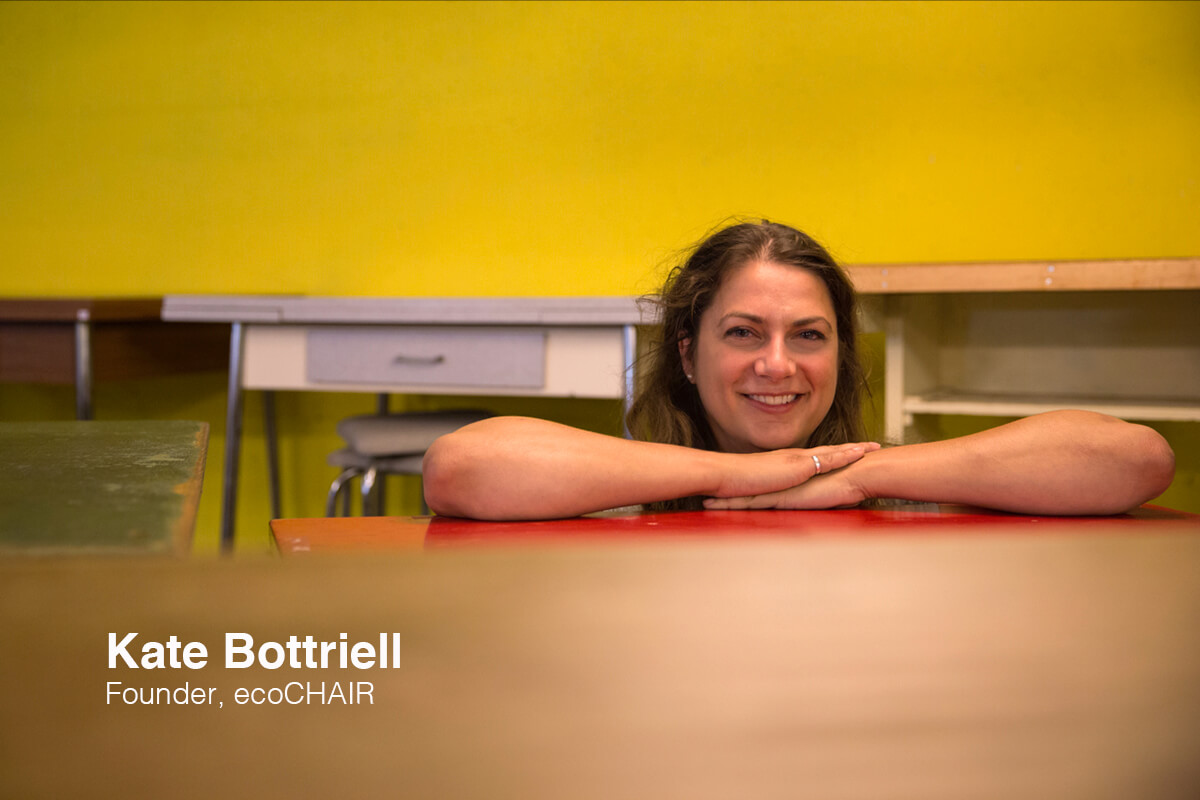
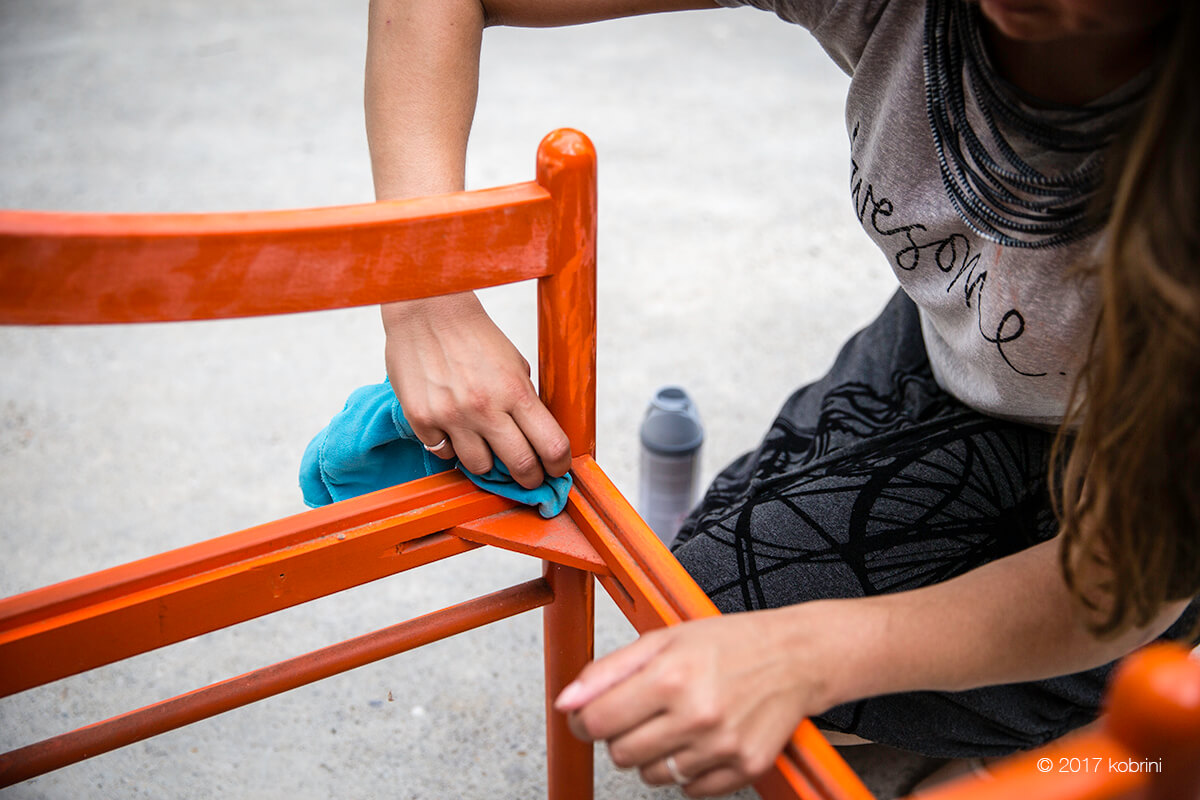
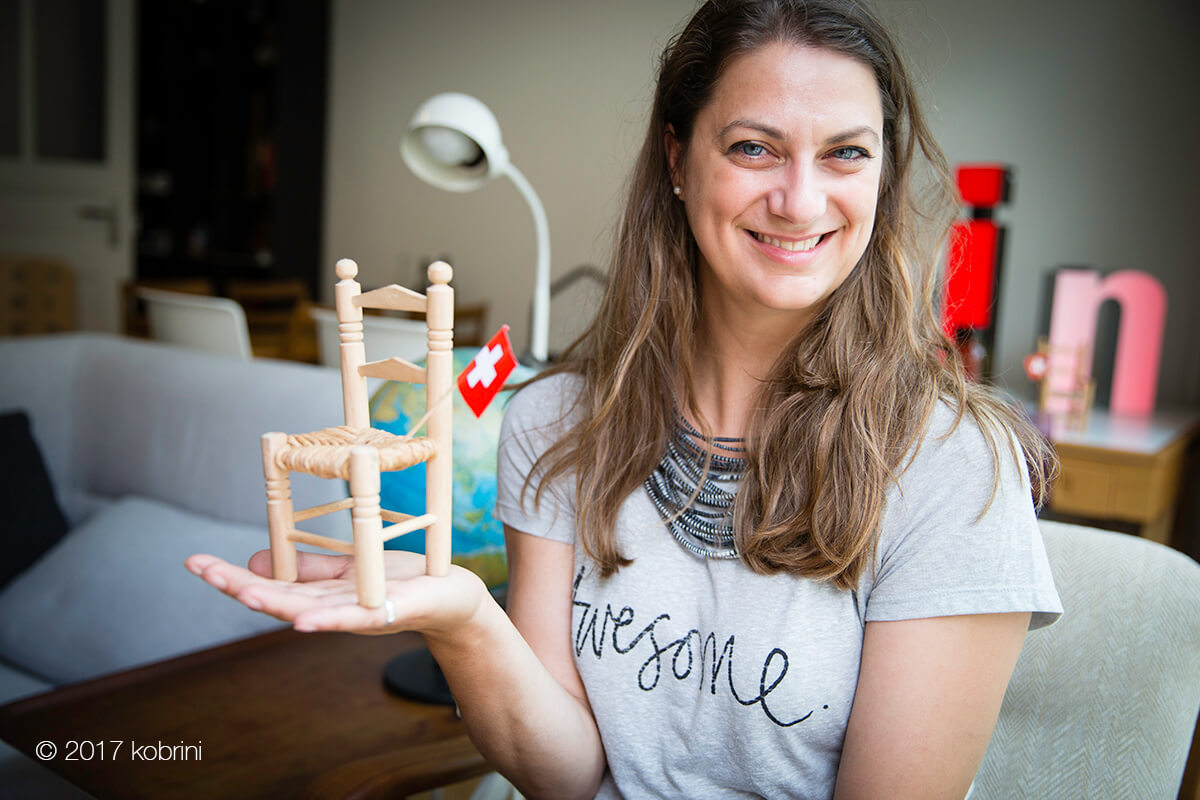
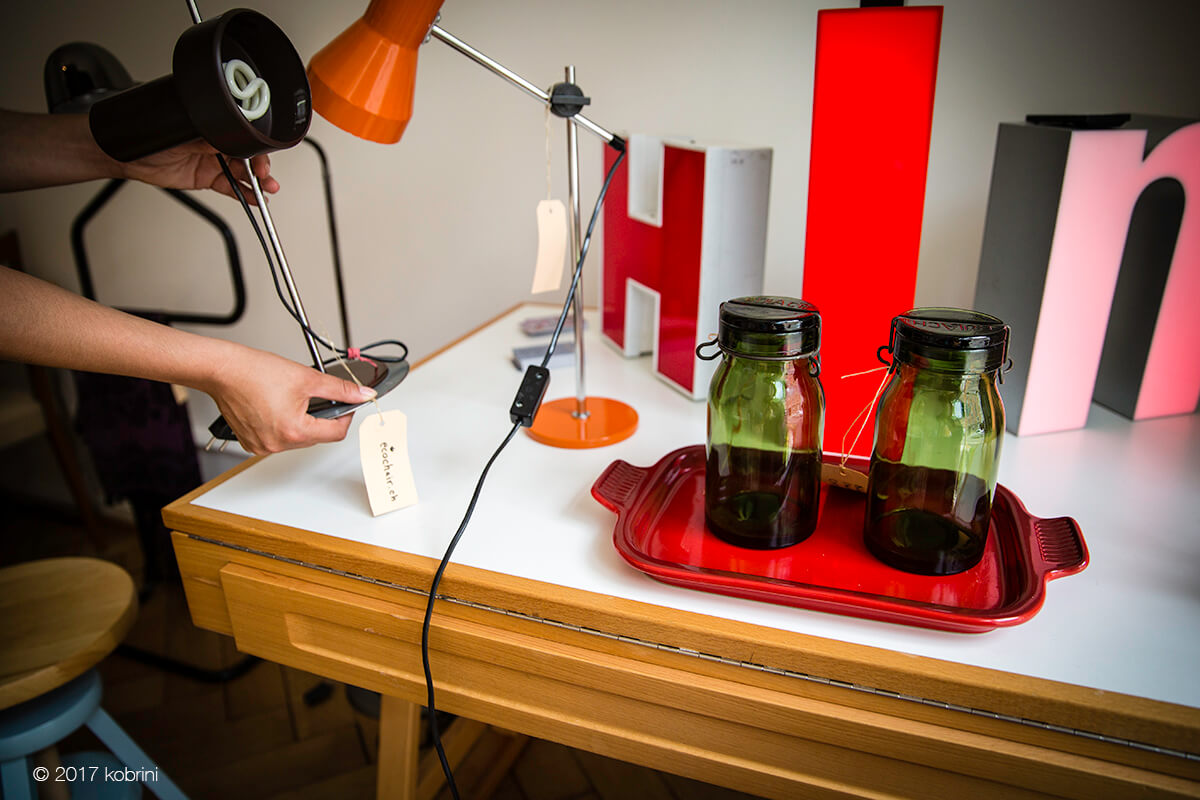
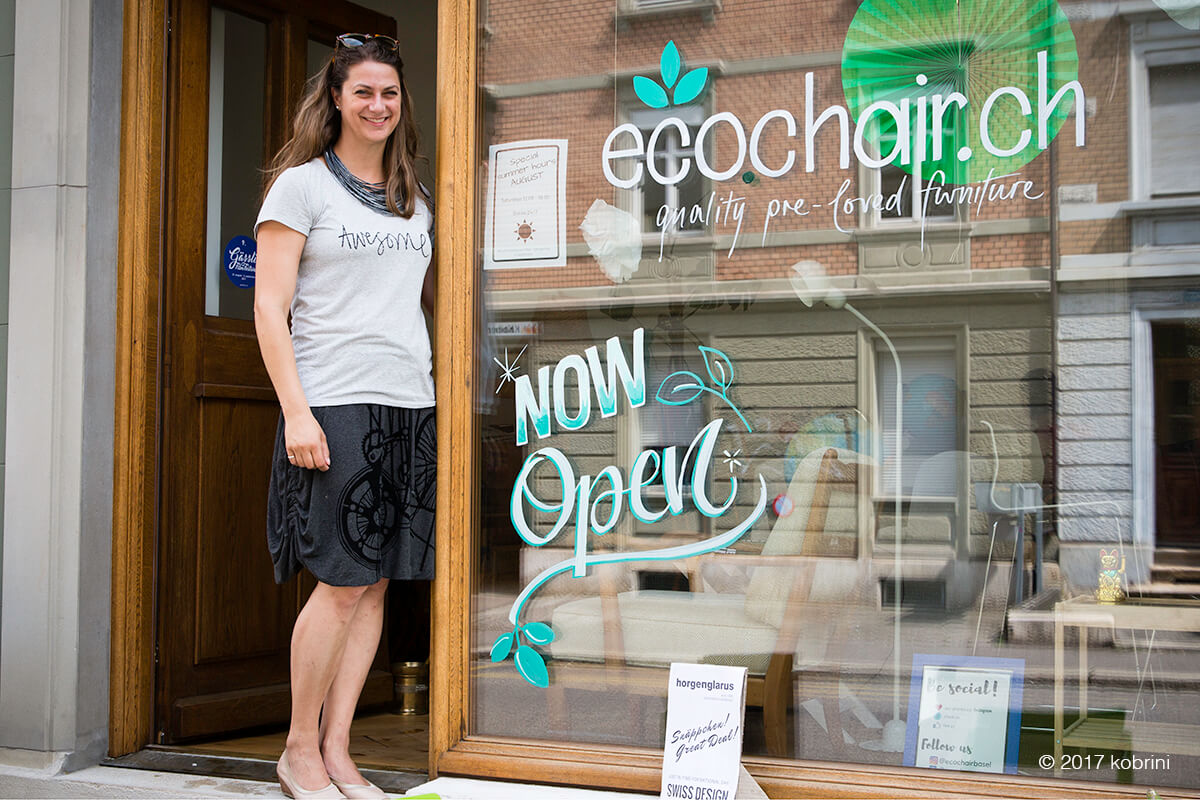


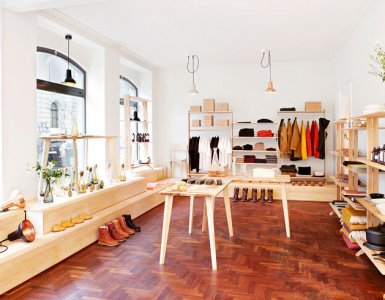

[…] This article was originally published on Newly Swissed. […]